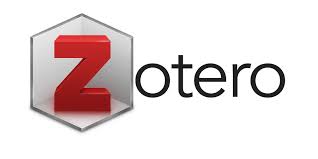Meningkatkan Self-Esteem Siswa Melalui Model Pembelajaran Learning Cycle 7E Berdasarkan Kemampuan Awal Matematis
DOI:
https://doi.org/10.29240/ja.v1i2.948Keywords:
Learning Cycle 7E, Self-Esteem, KAMAbstract
This research is a quasi-experimental research. The purpose of the study was to present a picture of the increase in self-esteem of students who obtained the 7E learning cycle learning model compared to students who obtained conventional learning based on student KAM. This research was conducted at a Junior High School in Serang Regency, Banten Province. Data collection techniques in research is through pretest and posttest. Data analysis was performed through a self-esteem scale score with the Mann-Whitney U test. The results showed that the increase in self-esteem of students who obtained the 7E learning cycle learning model was better than that of students who obtained conventional learning models in the medium KAM category. Whereas in the low and high KAM categories there is no difference in the increase in self-esteem of students who get the 7E learning cycle compared to students who get conventional learning.
Downloads
References
Alhadad, S. F. (2010). Meningkatkan Kemampuan Multiple Matematis dan Self-Esteem Siswa SMP melalui Pembelajaran dengan Pendekatan Open Ended. Disertasi Doktor pada SPs UPI. Bandung: Tidak Diterbitkan.
Fadillah, S. (2012). Meningkatkan Self-Esteem Siswa SMP Melalui Pembelajaran Dengan Pendekatan Open Ended. Journal Pendidikan MIPA, 13(1), 34-41. Retrieved from http://jurnal.fkip.unila.ac.id/index.php/JPM/article/view/398.
Happy, N & Widjajanti, D. B. (2014). Keefektifan PBL Ditinjau Dari Kemampuan Berfikir Kritis dan Kreatif Matematis serta Self-Esteem Siswa SMP. Journal Riset Pendidikan Matematika, 1(1), 48-57. Retrieved from https://journal.uny.ac.id/index.php/jrpm/article/view/2663.
Lestari, W. D. (2014). Peningkatan Kemampuan Pemecahan Masalah Matematis dan Habit of Managing Impulsivity Siswa SMP melalui Pembelajaran Kooperatif Tipe Group Investigation Berbantuan Proyek. Tesis pada SPs Universitas Pendidikan Indonesia. Tidak Diterbitkan.
Somakim. (2010). Peningkatan Kemampuan Berpikir Kritis dan Self-Efficacy Matematika Siswa Sekolah Menengah Pertama dengan Penggunaan Pendekatan Matematika Realistik. Disertasi Doktor pada SPs Universitas Pendidikan Indonesia. Bandung: Tidak Diterbitkan.
Sugiyono. (2010). Metode Penelitian Pendidikan. Bandung: Alfabeta.
Sumarmo, U. (2015). Pengembangan dan Contoh Butir Skala Nilai, Karakter, Budaya dan Aspek Afektif lainnya dalam Pembelajaran Matematika. (Online). Retrieved from http://utari- sumarmo.dosen.stkipsiliwangi.ac.id/files/2016/02/PENGEMBANGAN- SKALA-SOFT-SKILL-MATEMATIK-STKIP-TERBARU-2015.pdf.
Pradhana, R. B. H. A. (2015). Self-Esteem hubungannya dengan Penyalahgunaan Narkotika dan Obat-obatan Berbahaya Pada SMK 2 Batu Malang. Jurnal Konseling Indonesia. 1(1), 1-7. Retrieved from http://ejournal.unikama.ac.id/index.php/JKI/article/download/853/1625.
Tuna, A. & Kacar, A. (2013). The Effect of 5E Learning Cycle Model in Teaching Trigonometry on Students’s Academic The Permanence of Their Knowledge. International Journal on New Trends in Education and Their Implication, 4(2), 73-87.
Tran, V.D. (2012). Predicting the Attitudes and Self-Esteem of the Grade 9th Lower Secondary School Student Toward Mathematics from Their Perceptions of the Clasroom Learning Environment. World Journal of Education, 2(4), 34-43.
Turmudi. (2009). Taktik dan Strategi Pembelajaran Matematika. Jakarta: Leuser Cita Pustaka.
Downloads
Published
Issue
Section
Citation Check
License
Authors who publish with ARITHMETIC: Academic Journal of Math agree to the following terms:
- Authors retain copyright and grant the journal right of first publication with the work simultaneously licensed under a Creative Commons Attribution-NonCommercial-ShareAlike 4.0 International License (CC BY-NC-SA 4.0) that allows others to share the work with an acknowledgment of the work's authorship and initial publication in this journal.
- Authors are able to enter into separate, additional contractual arrangements for the non-exclusive distribution of the journal's published version of the work (e.g., post it to an institutional repository or publish it in a book), with an acknowledgment of its initial publication in this journal.
- Authors are permitted and encouraged to post their work online (e.g., in institutional repositories or on their website) prior to and during the submission process, as it can lead to productive exchanges, as well as earlier and greater citation of published work (See The Effect of Open Access).








